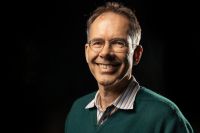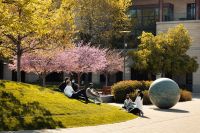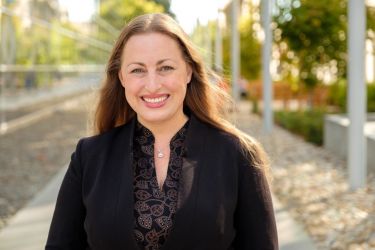Thanks to the Stanford community’s deep commitment to keeping each other safe through vaccination, masking, social distancing and regular testing, campus activity gradually began to pick up again in 2021.
A new pace was found in a world with different rhythms than what we were used to pre-pandemic.
Faculty, students and staff reconnected with their peers and colleagues, with some meeting each other in person for the first time. Athletics welcomed back Cardinal fans and our museums reopened their doors to the local community, all with added safety protections, of course.
The year also saw Stanford researchers make further advancements in science and technology, and scholars from the social sciences, arts and humanities offered new ways to understand problems facing society and the world at large.
Stanford also found a few moments to celebrate some notable achievements, including the Nobel Memorial Prize in Economic Sciences, a MacArthur “genius” grant and a Rhodes Scholarship, to name a few.
In addition, campus-wide efforts to promote diversity, equity, access and inclusion expanded significantly over the past year.
Below are a few of the highlights and reflections from the year.
Media Contacts
Melissa De Witte, Stanford News: mdewitte@stanford.edu
































































